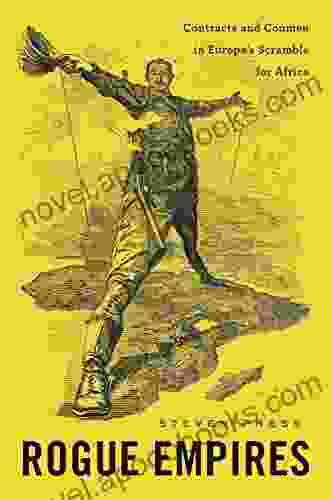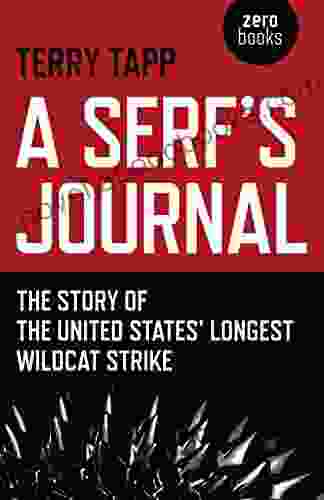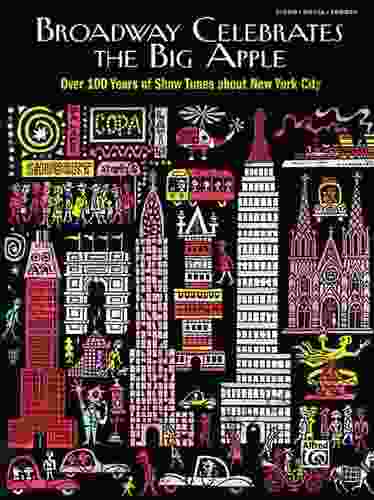The Role of the Military in Politics: A Comprehensive Guide

:
The relationship between the military and politics is a complex and ever-evolving one. Throughout history, the military has played a significant role in shaping political events, and in turn, political decisions have had a profound impact on the military.
In today's world, the role of the military in politics continues to be a subject of debate. Some argue that the military should remain strictly subordinate to civilian authority, while others believe that the military has a legitimate role to play in the political process.
This article will explore the various facets of the relationship between the military and politics. We will examine the historical evolution of this relationship, the different roles that the military can play in politics, and the ethical and legal issues that arise when the military becomes involved in political affairs.
4.2 out of 5
| Language | : | English |
| File size | : | 1405 KB |
| Text-to-Speech | : | Enabled |
| Screen Reader | : | Supported |
| Enhanced typesetting | : | Enabled |
| Word Wise | : | Enabled |
| Print length | : | 294 pages |
Image Alt Text: A group of soldiers marching in formation, symbolizing the military's involvement in politics.
Historical Evolution of the Relationship Between the Military and Politics
The military has played a role in politics since the dawn of civilization. In ancient Greece and Rome, the military was often used to suppress political dissent and maintain social Free Download. In the Middle Ages, the military was often the dominant force in society, and many rulers came to power through military conquest.
The relationship between the military and politics became more complex during the Enlightenment and the Industrial Revolution. As the power of the nation-state grew, so too did the power of the military. In many countries, the military became a tool of the state, used to expand territory, suppress dissent, and protect the interests of the ruling class.
In the 20th century, the role of the military in politics continued to evolve. The two World Wars led to a dramatic increase in the size and power of the military in many countries. After the Second World War, the United States emerged as the world's leading superpower, and its military became a global force.
The Cold War, which lasted from 1947 to 1991, was a period of intense rivalry between the United States and the Soviet Union. During this time, both countries maintained large standing armies and developed powerful nuclear arsenals. The Cold War also saw the rise of military-industrial complexes, which played a significant role in shaping the political and economic landscape of both countries.
The Different Roles of the Military in Politics
The military can play a variety of roles in politics. Some of the most common roles include:
- Defense: The military's primary role is to protect the state from external threats. This can involve defending against invasion, deterring aggression, and conducting military operations abroad.
- Internal security: The military can also be used to maintain internal security. This can involve suppressing riots, providing disaster relief, and assisting law enforcement agencies.
- Political intervention: In some cases, the military may intervene in politics to remove a government from power or to influence the outcome of an election. This type of intervention is often seen as a violation of the principle of civilian control of the military.
- Governance: In a few cases, the military has taken on a more permanent role in governance. This is often the case in countries that have experienced a breakdown of civilian authority, such as in the aftermath of a civil war or a coup d'état.
The Ethical and Legal Issues of Military Involvement in Politics
The involvement of the military in politics raises a number of ethical and legal issues. Some of the most important issues include:
- The principle of civilian control: The principle of civilian control holds that the military should be subordinate to civilian authority. This principle is based on the belief that the military should not be used to undermine the democratic process or to impose its will on society.
- The use of force: The military has the power to use force, and this power can be used to suppress dissent, intimidate political opponents, and violate human rights. It is important to ensure that the military's use of force is always subject to civilian oversight and accountability.
- The politicization of the military: The military should be apolitical, meaning that it should not take sides in political disputes and should not be used to promote a particular political ideology. However, the military is often politicized, and this can have a negative impact on its effectiveness and legitimacy.
:
The relationship between the military and politics is a complex and ever-evolving one. Throughout history, the military has played a significant role in shaping political events, and in turn, political decisions have had a profound impact on the military.
In today's world, the role of the military in politics continues to be a subject of debate. Some argue that the military should remain strictly subordinate to civilian authority, while others believe that the military has a legitimate role to play in the political process.
It is important to carefully consider the ethical and legal issues that arise when the military becomes involved in political affairs. The principle of civilian control, the use of force, and the politicization of the military are all important issues that must be addressed in Free Download to ensure that the military remains a force for good in society.
4.2 out of 5
| Language | : | English |
| File size | : | 1405 KB |
| Text-to-Speech | : | Enabled |
| Screen Reader | : | Supported |
| Enhanced typesetting | : | Enabled |
| Word Wise | : | Enabled |
| Print length | : | 294 pages |
Do you want to contribute by writing guest posts on this blog?
Please contact us and send us a resume of previous articles that you have written.
 Book
Book Novel
Novel Page
Page Chapter
Chapter Text
Text Story
Story Genre
Genre Reader
Reader Library
Library Paperback
Paperback E-book
E-book Magazine
Magazine Newspaper
Newspaper Paragraph
Paragraph Sentence
Sentence Bookmark
Bookmark Shelf
Shelf Glossary
Glossary Bibliography
Bibliography Foreword
Foreword Preface
Preface Synopsis
Synopsis Annotation
Annotation Footnote
Footnote Manuscript
Manuscript Scroll
Scroll Codex
Codex Tome
Tome Bestseller
Bestseller Classics
Classics Library card
Library card Narrative
Narrative Biography
Biography Autobiography
Autobiography Memoir
Memoir Reference
Reference Encyclopedia
Encyclopedia Tom Rush
Tom Rush Theresa Funiciello
Theresa Funiciello Steven Shepard
Steven Shepard Patrick Blessinger
Patrick Blessinger Phil Cousineau
Phil Cousineau Troy Pummill
Troy Pummill Reds Johnson
Reds Johnson Nifemi Aluko
Nifemi Aluko Ray Kingfisher
Ray Kingfisher Stefanie Bridges Mikota
Stefanie Bridges Mikota Philip K Dick
Philip K Dick Norm Foster
Norm Foster Ruth Druart
Ruth Druart The Dark Lords
The Dark Lords Paul Stenning
Paul Stenning Pauline Nzilani Mwanzia
Pauline Nzilani Mwanzia Pierre Corneille
Pierre Corneille Tuesday Embers
Tuesday Embers Sally P Springer
Sally P Springer Patricia Burns
Patricia Burns
Light bulbAdvertise smarter! Our strategic ad space ensures maximum exposure. Reserve your spot today!

 Jules VerneTwo Anansi Stories: Dive into a Magical Realm of Trickery and Adventure with...
Jules VerneTwo Anansi Stories: Dive into a Magical Realm of Trickery and Adventure with... Eric NelsonFollow ·19k
Eric NelsonFollow ·19k Jarrett BlairFollow ·8k
Jarrett BlairFollow ·8k Colton CarterFollow ·19.3k
Colton CarterFollow ·19.3k Chance FosterFollow ·11.7k
Chance FosterFollow ·11.7k Jeffery BellFollow ·9.5k
Jeffery BellFollow ·9.5k Dan BellFollow ·13.7k
Dan BellFollow ·13.7k Robert HeinleinFollow ·16.7k
Robert HeinleinFollow ·16.7k Isaiah PowellFollow ·15.6k
Isaiah PowellFollow ·15.6k

 Shaun Nelson
Shaun NelsonUnlocking the Intricate Nexus: The Globalization and the...
In an era marked by...

 Robin Powell
Robin PowellLast Summer at the Golden Hotel: A Captivating Journey of...
Synopsis: A Transformative Summer at...

 Gabriel Mistral
Gabriel MistralContracts And Conmen In Europe Scramble For Africa
The late 19th and early...

 Glenn Hayes
Glenn HayesThe Story of the United States' Longest Wildcat Strike: A...
Prologue: The...

 Evan Hayes
Evan HayesBritain Empire Resistance Repression And Revolt:...
: The Tapestry of...

 Eddie Bell
Eddie BellGreen's Operative Hand Surgery: The Ultimate Guide for...
Green's Operative Hand Surgery is the...
4.2 out of 5
| Language | : | English |
| File size | : | 1405 KB |
| Text-to-Speech | : | Enabled |
| Screen Reader | : | Supported |
| Enhanced typesetting | : | Enabled |
| Word Wise | : | Enabled |
| Print length | : | 294 pages |










